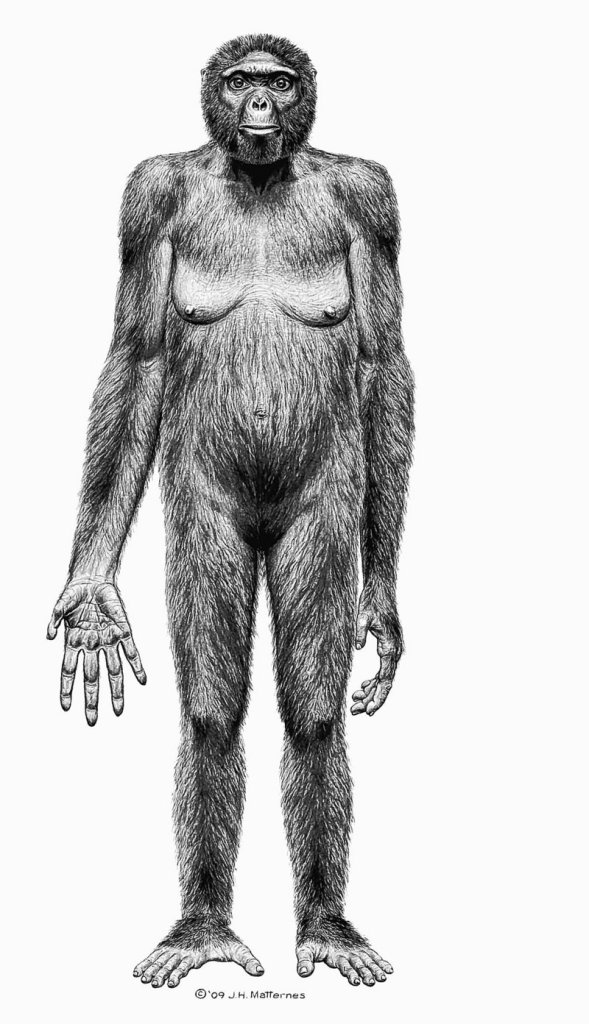NEW YORK — Last fall, a fossil skeleton named “Ardi” shook up the field of human evolution. Now, some scientists are raising doubts about what exactly the creature from Ethiopia was and what kind of landscape it inhabited.
New critiques question whether Ardi really belongs on the human branch of the evolutionary tree, and whether it really lived in woodlands. That second question has implications for theories about what kind of environment spurred early human evolution.
The new work is being published by the journal Science, which had declared the original presentation of the 4.4 million-year-old fossil to be the magazine’s breakthrough of the year.
Ardi, short for Ardipithecus ramidus, is a million years older than the famous “Lucy” fossil. Last year, it was hailed as a window on early human evolution.
Researchers concluded that “Ardi” walked upright rather than on its knuckles like chimps, and that it lived in woodlands rather than open grasslands. It didn’t look much like today’s chimps, our closest living relatives, even though it was closer than Lucy to the common ancestor of humans and chimps.
Esteban Sarmiento of the Human Evolution Foundation in East Brunswick, N.J., wrote in the new analysis that he’s not convinced Ardi belongs on the evolutionary tree branch leading to modern humans.
Instead, he said he thinks it came along before that human branch split off from the ancestors of chimps and gorillas.
The specific anatomical features of teeth, the skull and elsewhere that the researchers cited just don’t make a convincing case for membership on the human branch, he argued. Some, like certain features in the wrist and where the lower jaw connects to the skull, indicate instead that Ardi arose before humans split off from African apes, he said.
Copy the Story Link
Send questions/comments to the editors.



Success. Please wait for the page to reload. If the page does not reload within 5 seconds, please refresh the page.
Enter your email and password to access comments.
Hi, to comment on stories you must . This profile is in addition to your subscription and website login.
Already have a commenting profile? .
Invalid username/password.
Please check your email to confirm and complete your registration.
Only subscribers are eligible to post comments. Please subscribe or login first for digital access. Here’s why.
Use the form below to reset your password. When you've submitted your account email, we will send an email with a reset code.